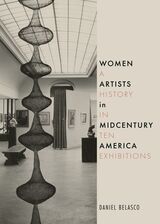16 start with L start with L
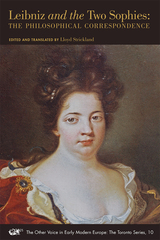
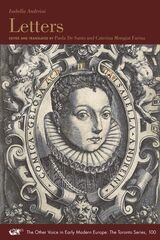
Isabella Andreini (1562–1604) was a commedia dell’arte diva who toured Italy and France as part of the Compagnia dei Comici Gelosi. Letters is a collection of epistles written by Andreini in fictional, anonymous, male, and female voices, a “hermaphroditic” alternation of gender unlike any that had been seen in letter writing to that time. In her letters, Andreini remade the humanistic epistolary genre into a distinctive fusion of literary and dramatic performance. The guise of epistolary intimacy cedes to a knowing artificiality, which allows for the emergence of Andreini’s modern critique of the gendered self as a uniform entity. The collection centers on love and examines—from surprising perspectives—pertinent issues such as death, the birth of a girl, prostitution, patriarchal marital practices, love in old age, courtiership, country and city life, human nature, and defenses and critiques of both sexes.
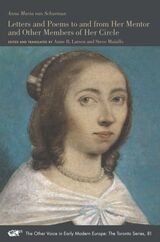
This volume presents in translation a remarkable collection of her letters and poems—many of which were previously unpublished—that span almost four decades of her life, from 1631 to 1669.
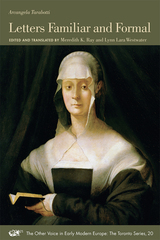
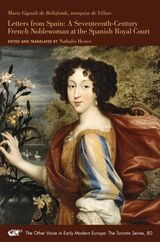
This volume includes her surviving letters from Madrid to her friend Madame de Coulanges and an appendix of her letters sent from Paris and Turin. The letters from Spain, written between 1679 and 1681, paint a vivid and engaging picture of the royal court and its new queen.
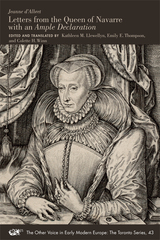
This edition presents in English, for the first time, Jeanne d’Albret’s Letters to the king, his mother, his brother, her own brother-in-law, and the queen of England, together with her Ample Declaration (1568) defending her decampment to the Protestant stronghold of La Rochelle. A historical-biographical introduction situates these writings in the larger context of Reformation politics and examines in detail the specific literary characteristics of her memoir. In her works, Jeanne d’Albret asserts her own position as legal sovereign of Béarn and Navarre and situates herself at the nexus of overlapping political, religious, and familial tensions.
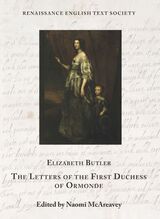
The volume comprises more than three hundred letters written by Ormonde to her husband and family, agents and servants, and friends and clients. Spanning six decades, these letters are meticulously transcribed, edited, and annotated, and the volume includes a substantial scholarly introduction, family trees, a glossary, and other resources.
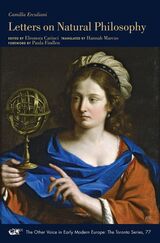
This edition presents the first full English translation of Erculiani’s book and other relevant texts, bringing to light the cultural context and scientific thought of this unique natural philosopher.
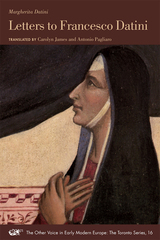
—Jane Tylus
Professor of Italian Studies and vice provost for academic affairs, New York University
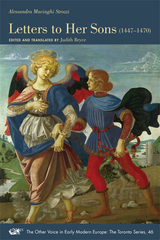
The seventy-three surviving letters written by Florentine widow, Alessandra Macinghi Strozzi (c.1406–1471), to her distant sons first appeared in print well over a century ago, but are here translated into English in their entirety for the first time. Whether for the professional historian or for the general reader interested in Renaissance Florence, they constitute a most precious testimony regarding both private and public life in the mid-fifteenth century, with themes ranging from familial relations, motherhood, marriage, and aspects of material culture to the harsh realities of political exile meted out by the Medici to their perceived opponents, these latter including her husband and, subsequently, her sons.
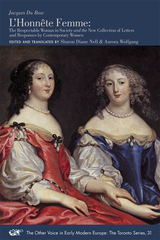
—Reverend John J. Conley, SJ
Knott Professor of Philosophy, Loyola University Maryland
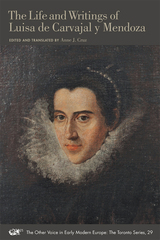
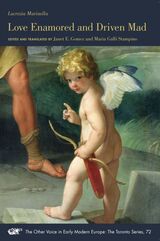
The Other Voice in Early Modern Europe - The Toronto Series, volume 72
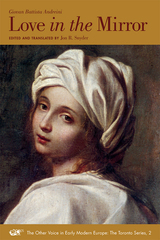
Originally published in 1622, Love in the Mirror tells the unforgettable and path-breaking story of a passionate love affair between two women in early modern Florence. Despite the risk of social sanctions, Florinda and Lidia freely consent to love each other “breast to breast and mouth to mouth,” with some surprising consequences for the institution of marriage.
This bilingual edition of the play introduces the English-speaking reader to one of the most remarkable creative artists of the Baroque age, Giovan Battista Andreini (1576–1654). Actor, playwright, and son of the first great diva of the European stage, Isabella Andreini, Giovan Battista was renowned in his lifetime as an avant-garde theatrical innovator. While drawing on the Italian commedia dell’arte, his comedies go far beyond its limits in order— like Calderón, Corneille and Shakespeare—to subvert traditional views of the relationship between art and life, representation and reality.
Love in the Mirror, which was lost from view for centuries, is here translated for the first time into a highly accessible and fully annotated English version. The volume includes a wideranging introduction to this experimental comic masterpiece, as well as to the life and works of G.B. Andreini.
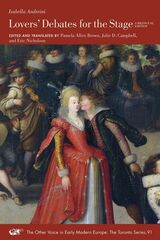
The actress and author Isabella Andreini won international renown playing the bold, versatile, and intellectual inamorata of the commedia dell’arte. After her death, her husband Francesco Andreini continued publishing her works, among them the thirty-one amorosi contrasti—or lovers’ debates— presented in this volume. Available in English for the first time, Lovers' Debates enables readers to envision the commedia dell’arte through the words of its most revered diva. Lovers flirt boldly, trade bawdy insults, exhibit their learning, and drive each other mad in stage dialogues that showcase Isabella’s skill in composition and drama. Sparkling with wit and bursting with dynamic energy, these brilliant lovers’ dialogues for the stage hold strong appeal not only for specialists in early modern literature and women’s studies, but for enthusiasts, scholars, and practitioners of classic and contemporary theatre.
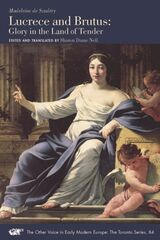
Comprising texts by Madeleine de Scudéry, including many from her novel Clélie, this volume focuses on the story of Lucretia, the Roman matron whose rape and suicide led to the downfall of the Roman monarchy. Through her work, Scudéry seeks to contrast the enormous cultural contributions of women with their physical vulnerability and to propose an alternative to sexual violation, as envisioned on the Map of the Land of Tender that charts an imaginary land in the novel and outlines a path toward love. In Scudéry’s version of this tale, Lucrece and her beloved, Brutus, follow the path of tender friendship. Scudéry contradicts history’s characterization of Lucrece as craving glory in the form of fame. Indeed, contrary to ancient sources, Lucrece’s glory will be her decision to sacrifice herself secretly for her tender friend.
READERS
Browse our collection.
PUBLISHERS
See BiblioVault's publisher services.
STUDENT SERVICES
Files for college accessibility offices.
UChicago Accessibility Resources
home | accessibility | search | about | contact us
BiblioVault ® 2001 - 2024
The University of Chicago Press


